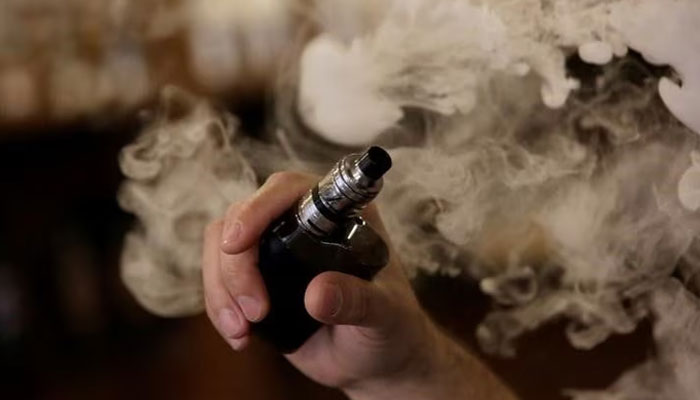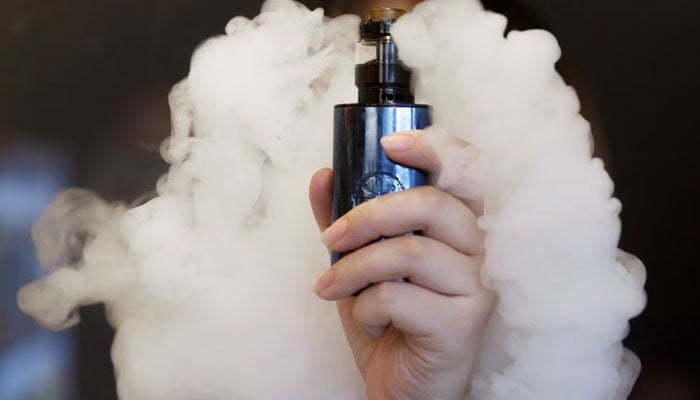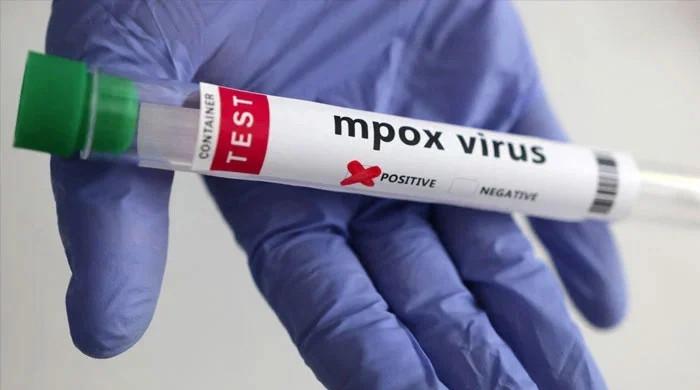Brain damage: Deadly levels of heavy metals found in students' vapes
"In 15 years of testing, I have never seen lead in a device. None of these should be on the market," says lab co-founder
May 23, 2023

Students from Baxter College in Kidderminster could be inhaling more lead, nickel and chromium than the daily safe levels, which could hamper their brain development, according to a BBC report.
Vapes acquired from the students were examined in the laboratory, revealing that they were inhaling twice the safe amount of lead and nine times the nickel with some vapes containing hazardous chemicals found in cigarettes.
The high consumption of lead can damage the central nervous system and brain development, as per World Health Organization (WHO).
At least 18 vapers were examined by the Inter Scientific laboratory, in Liverpool.
"In 15 years of testing, I have never seen lead in a device. None of these should be on the market — they break all the rules on permitted levels of metal," said lab co-founder David Lawson.
"They are the worst set of results I've ever seen,” he highlighted.
The highlighter-pen-looking vapes contained 12 micrograms per gram of lead — 2.4 times the stipulated safe exposure level — 9.6 times safe levels of nickel and 6.6 times safe levels of chromium. These metals came from e-liquid.
The lab tests also revealed that compounds called carbonyls — which break down, when the e-liquid heats up, into chemicals such as formaldehyde and acetaldehyde, also found in cigarette smoke — were 10 times the level in legal vapes. Some vapes contain more levels than cigarettes.

Medicine and Health Care Products Regulatory Agency (MHRA) head of e-cigarettes Craig Copland said the results would be reviewed to assess whether the vapes posed a health risk.
Baxter College pupils Leon and Oscar, whose vapes had been confiscated, said they had struggled to give up vaping.
"You won't really care if you're addicted to it — you'll just forget about it," Oscar said.
Leon said regulation and policing should be doing more to tackle the problem.
"They're not really as bothered as they should be," he said.
Headteacher Mat Carpenter was horrified by the findings.
"As a society, we are capable of holding two messages, one that if you smoke already vaping can have a positive effect on your health, but children should not be vaping."
Is vaping good for health?
Vaping nearly killed me, said a British teenager.
University of Nottingham epidemiology professor John Britton, who sits on the Royal College of Physicians Tobacco Group, said inhaling metals could be dangerous.
He said: "Lead is a neurotoxin and impairs brain development, chrome and nickel are allergens and metal particles in general in the bloodstream can trigger blood clotting and can exacerbate the cardiovascular disease."
"The carbonyls are mildly carcinogenic and so with sustained use will increase the risk of cancer — but in legal products, the levels of all of these things are extremely low so the lifetime risk to the individual is extremely small."
To sell vapes to under 18 people is illegal a YouGov survey conducted in March and April for Action on Smoking and Health showed a rise in experimental vaping among 11 to 17-year-olds, from 7.7%, last year, to 11.6%.
There had been a much more significant rise in illegal products recently and "some of these are hard to distinguish between the ones which are potentially legal", believed Lawson.











